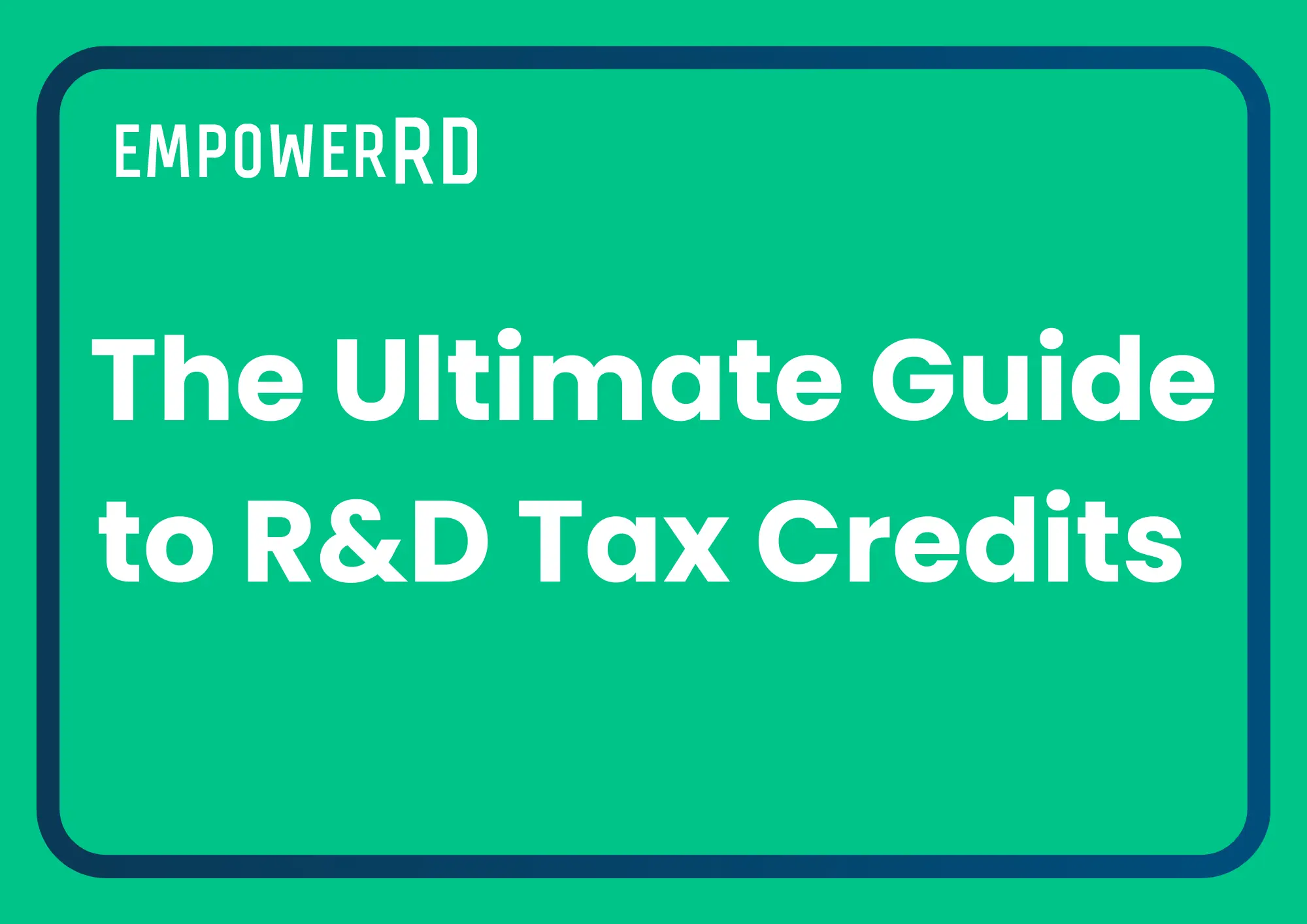UK limited companies that undertake research and development (R&D) projects may be eligible to claim R&D tax credits if their work meets HMRC’s definition of eligible R&D.
Broadly speaking, your project must aim to advance science or technology, and must tackle scientific or technological uncertainties through methodical experimentation. This work must be conducted by competent professionals.
However, understanding HMRC’s precise definition of eligible R&D can sometimes be challenging. This article breaks down the key criteria to help you determine whether your project qualifies for R&D tax credits.
In this article:
HMRC’s definition of R&D for tax purposes
According to HMRC, R&D arises when a business seeking a scientific or technological advance faces and tries to overcome scientific or technological uncertainties through methodical experimentation that is conducted by a competent professional.
We understand how difficult it might be to interpret the definition above, which is why we’ve done our best to break it down into four criteria to help you get an early indication of whether or not your project qualifies as R&D.
Criterion 1: New or improved product
If your business is developing a new or significantly improved product, process, or service, it can be considered R&D if it involves a scientific or technological advance and tackles uncertainties that a competent professional in the field wouldn’t readily resolve. For instance, this could entail overcoming obstacles for which there isn’t an obvious or readily available solution.
Two examples of qualifying projects could be:
Example 1: AI powered fraud detection software
As an example of a qualifying project, a company could be developing AI-powered fraud detection software where:
- Uncertainty: Achieving high accuracy with a novel algorithm
- Advance: More effective fraud prevention.
- Competent Professional: An experienced software engineer that specialises in machine learning.
Example 2: Production line for a new composite material
Modifying a production line for a new composite material.
- Uncertainty: Scaling production while maintaining material properties.
- Advance: Cost-effective manufacturing of the new material.
- Competent Professional: Materials engineer with expertise in composite manufacturing.
Criterion 2: Scientific or technological advance
To qualify, your project must seek to make an advance in science or technology. This means developing new knowledge or capabilities in a specific scientific or technological field, not just achieving a general business improvement. The advance should be something that isn’t already widely known or understood in that field.
Essentially, if you looked at an off-the-shelf technology and instead built a bespoke application or machine to solve your problem, then that work will likely qualify as an R&D advance.
For example, let’s take developing a new database architecture for unstructured data:
- Advance: Faster, more efficient data analysis.
- Competent professional: Database architect specialising in big data solutions.
Criterion 3: Scientific or technological uncertainty
A core requirement for R&D tax credits is that your project addresses scientific or technological uncertainties. These are uncertainties that a competent professional in the relevant field cannot readily resolve using existing knowledge or standard practices. These uncertainties mean that the project’s success isn’t assured, and requires systematic investigation and experimentation to overcome them. A key indicator of such uncertainty is that the solution isn’t already publicly available or easily deducible by a competent professional.
Criterion 4: Competent professional
R&D work must be planned and overseen by competent professionals with demonstrable expertise in the relevant scientific or technological field. These individuals should possess the technical knowledge to understand the project’s challenges, evaluate potential solutions, and guide the experimental process.
Examples include:
- Engineers
- Developers
- scientists with specific expertise related to the project’s technical domain.
While skilled craftspeople may be involved in implementing R&D, their involvement alone does not necessarily qualify a project as R&D.
Which activities don’t count as R&D?
Not all innovative activities will qualify for R&D tax credits. The work must involve advancing science or technology and overcoming scientific or technological uncertainties, and not just general business challenges. Here are some common examples of activities that typically do not qualify:
- Standard Business Improvements: Implementing existing technologies or processes (e.g., installing off-the-shelf software, upgrading IT infrastructure). These rely on established knowledge, not new discoveries.
- Cosmetic Enhancements: Projects focused solely on visual appeal or style (e.g., website redesign, new logo). These lack scientific or technological advancement.
- Market Research: Activities focused on understanding market dynamics, and not advancing scientific or technological knowledge.
- Routine Software Development: Developing software using well-established techniques, without addressing significant technical uncertainties.
- Duplication: Simply reproducing existing technologies, even in a new context. R&D requires genuine innovation.
- Implementing Known Solutions: Solving a problem with readily available solutions (e.g. installing standard database software) would not qualify as R&D. However, developing a novel solution in-house to address unique needs could qualify.
- Aesthetic Design: Purely aesthetic improvements without functional or technical innovation.









